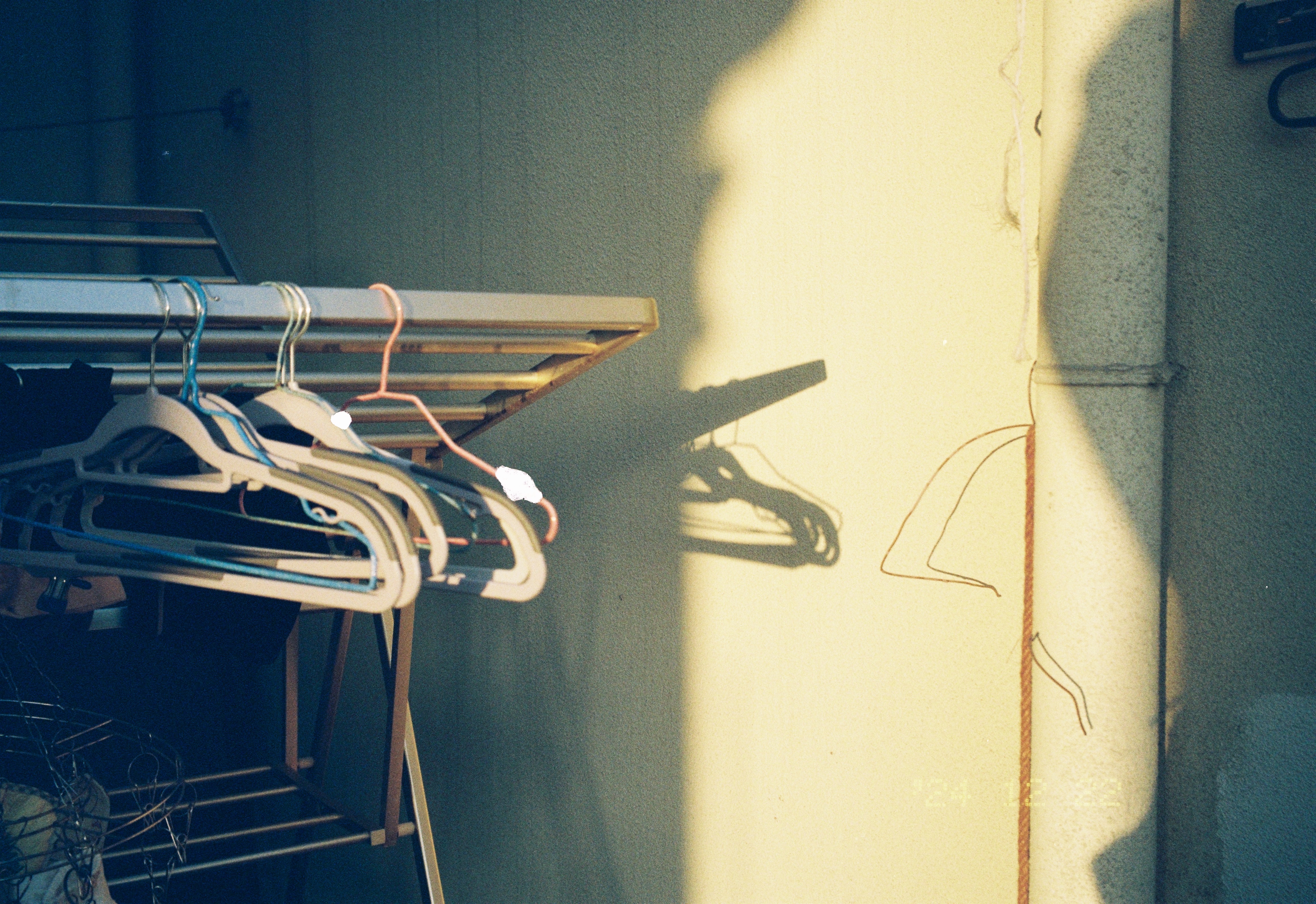

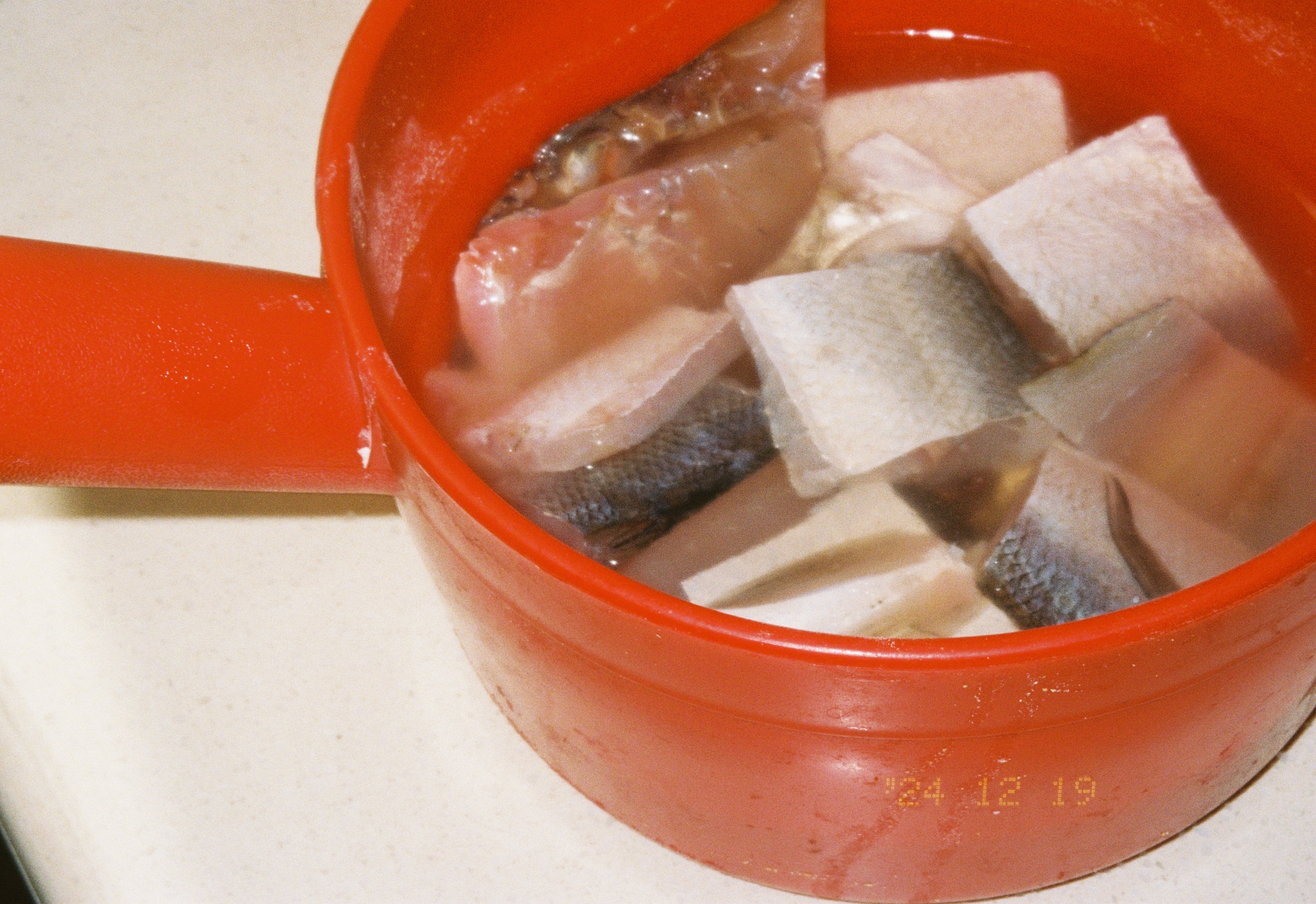
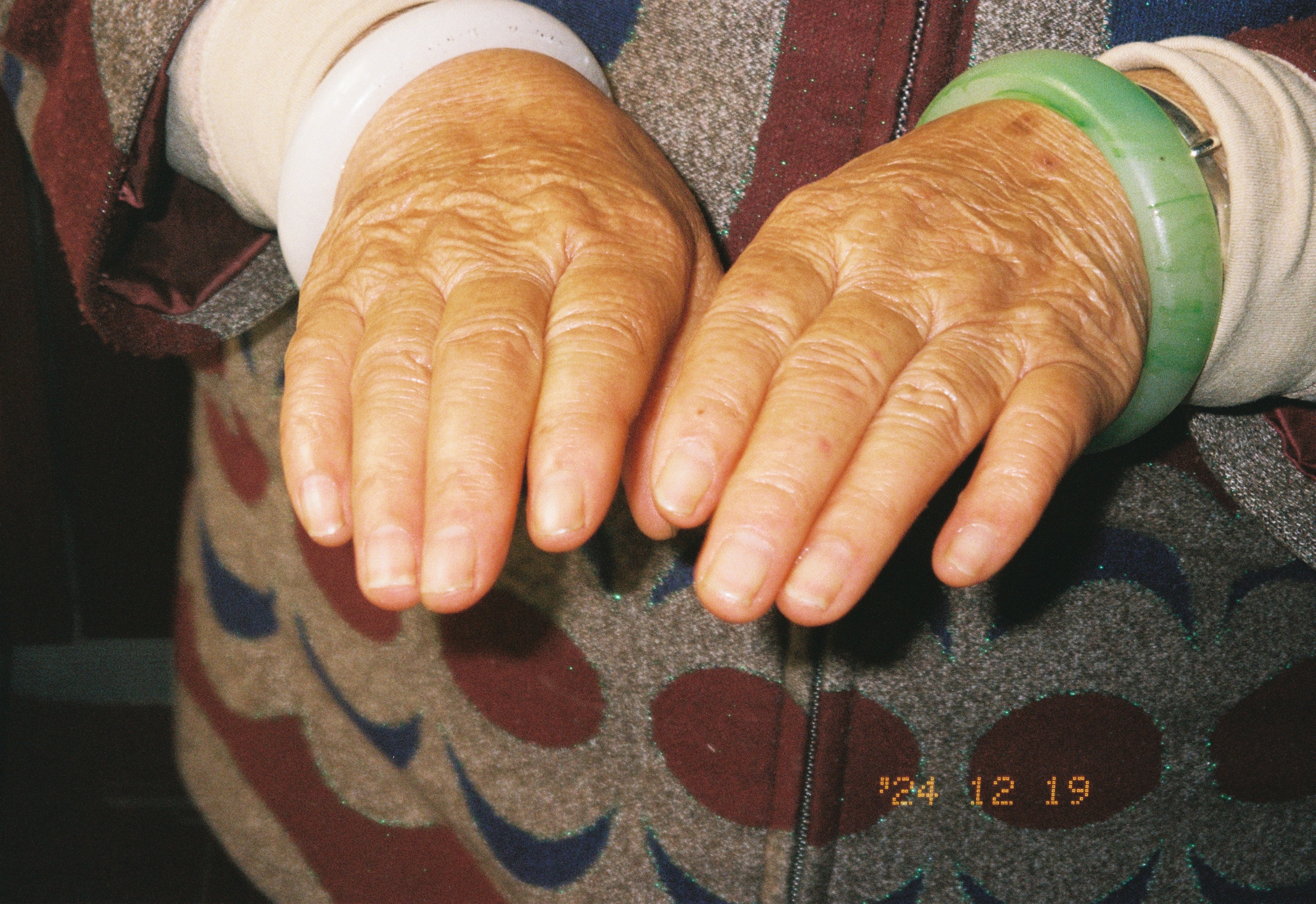
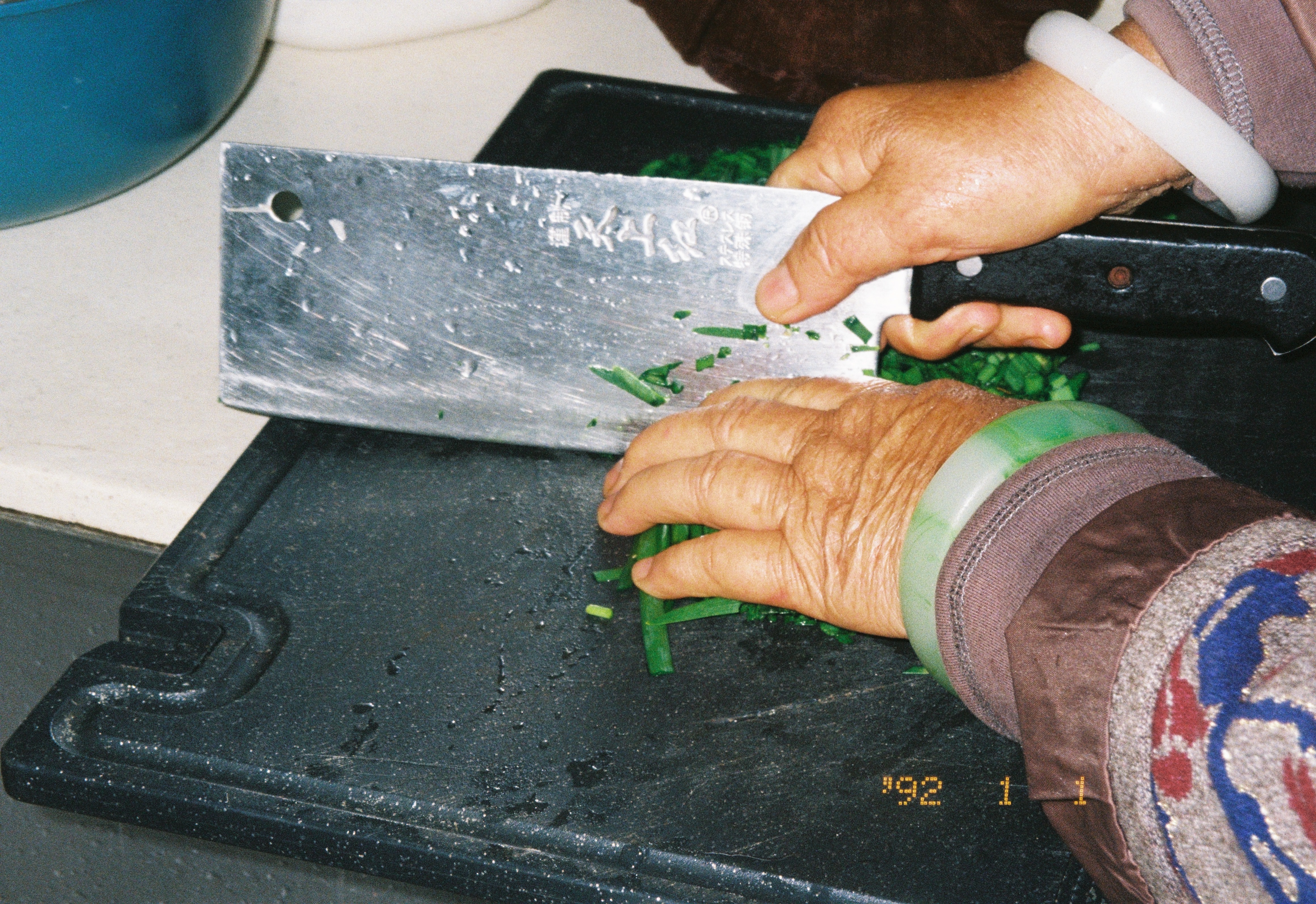
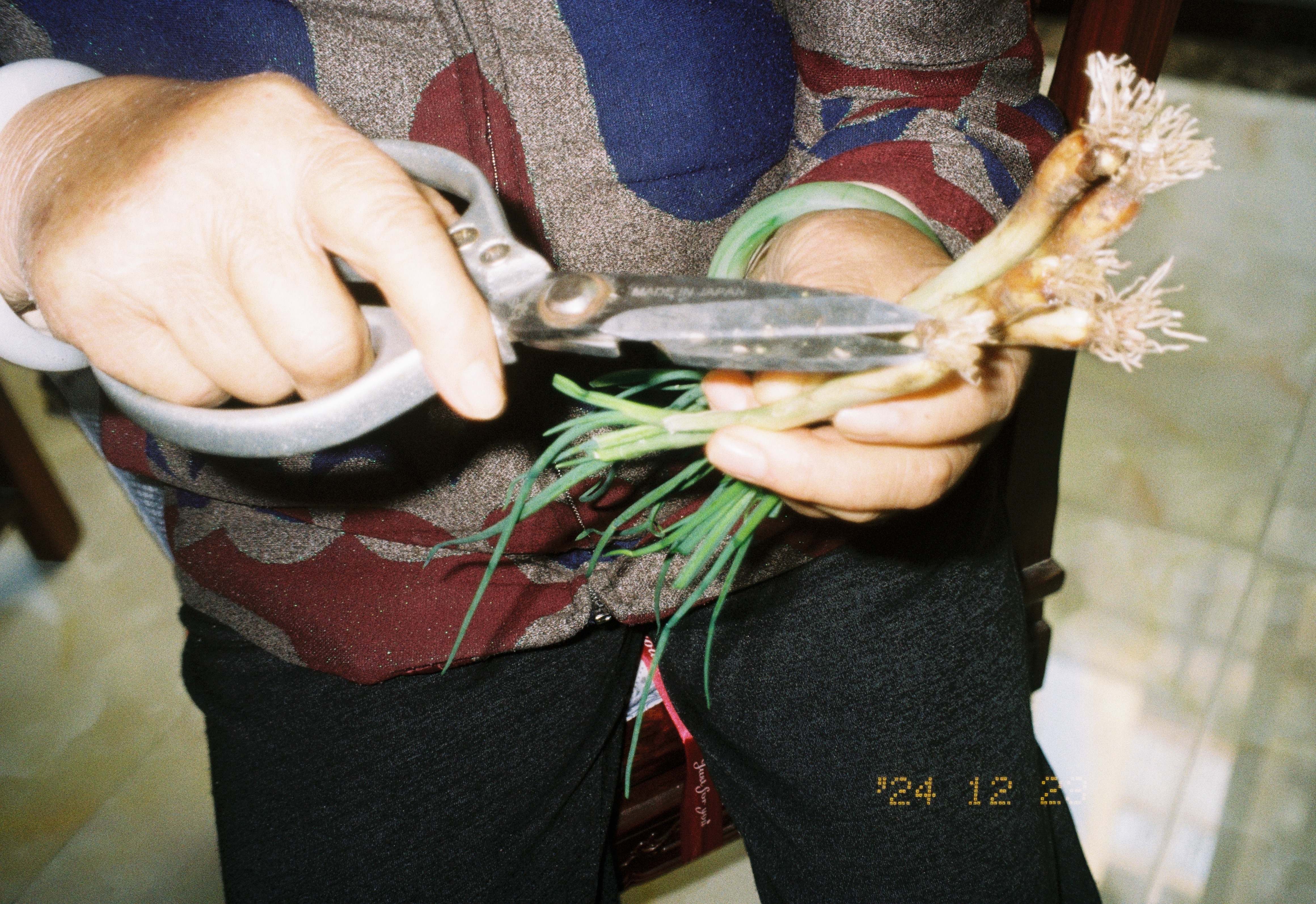
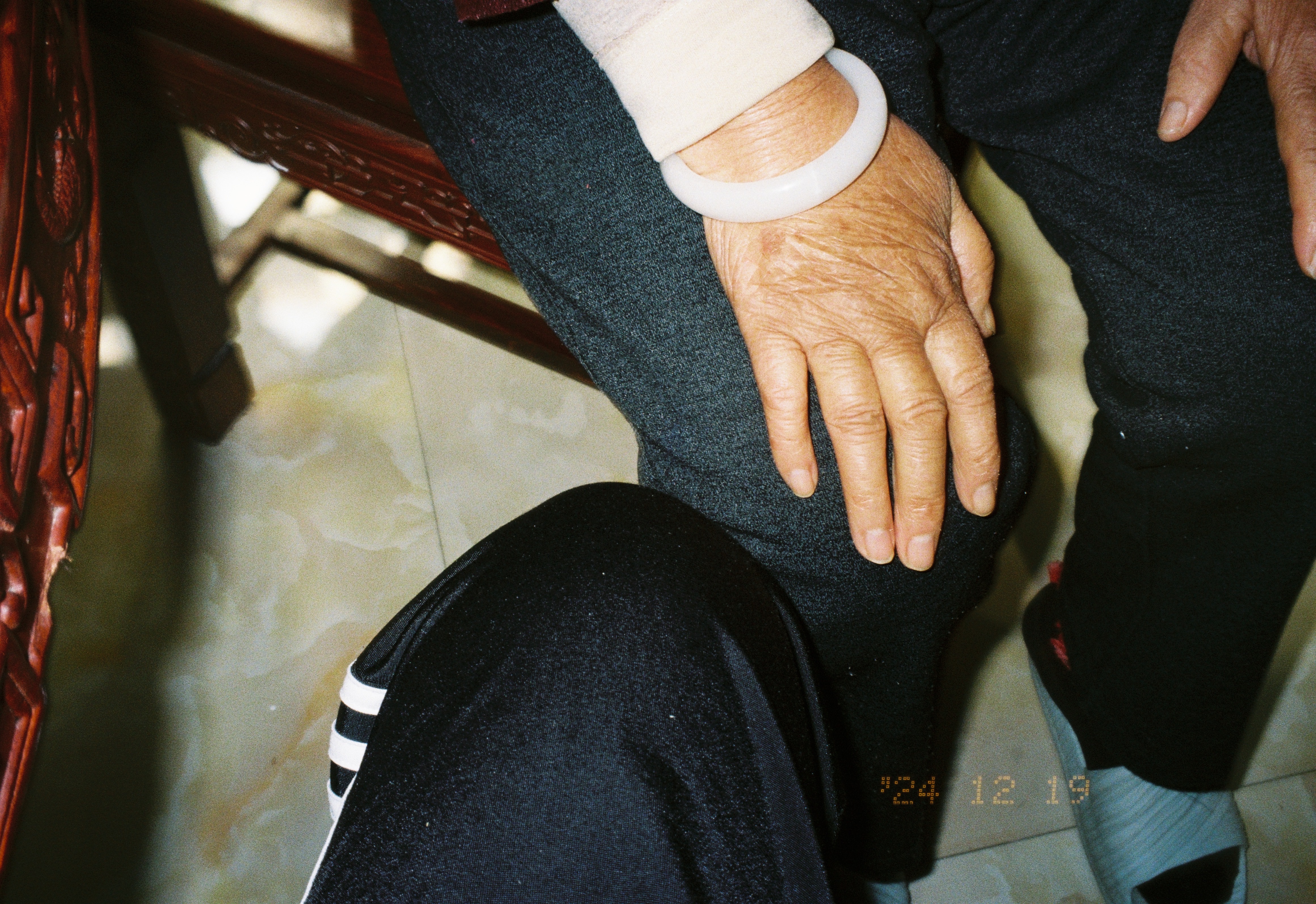
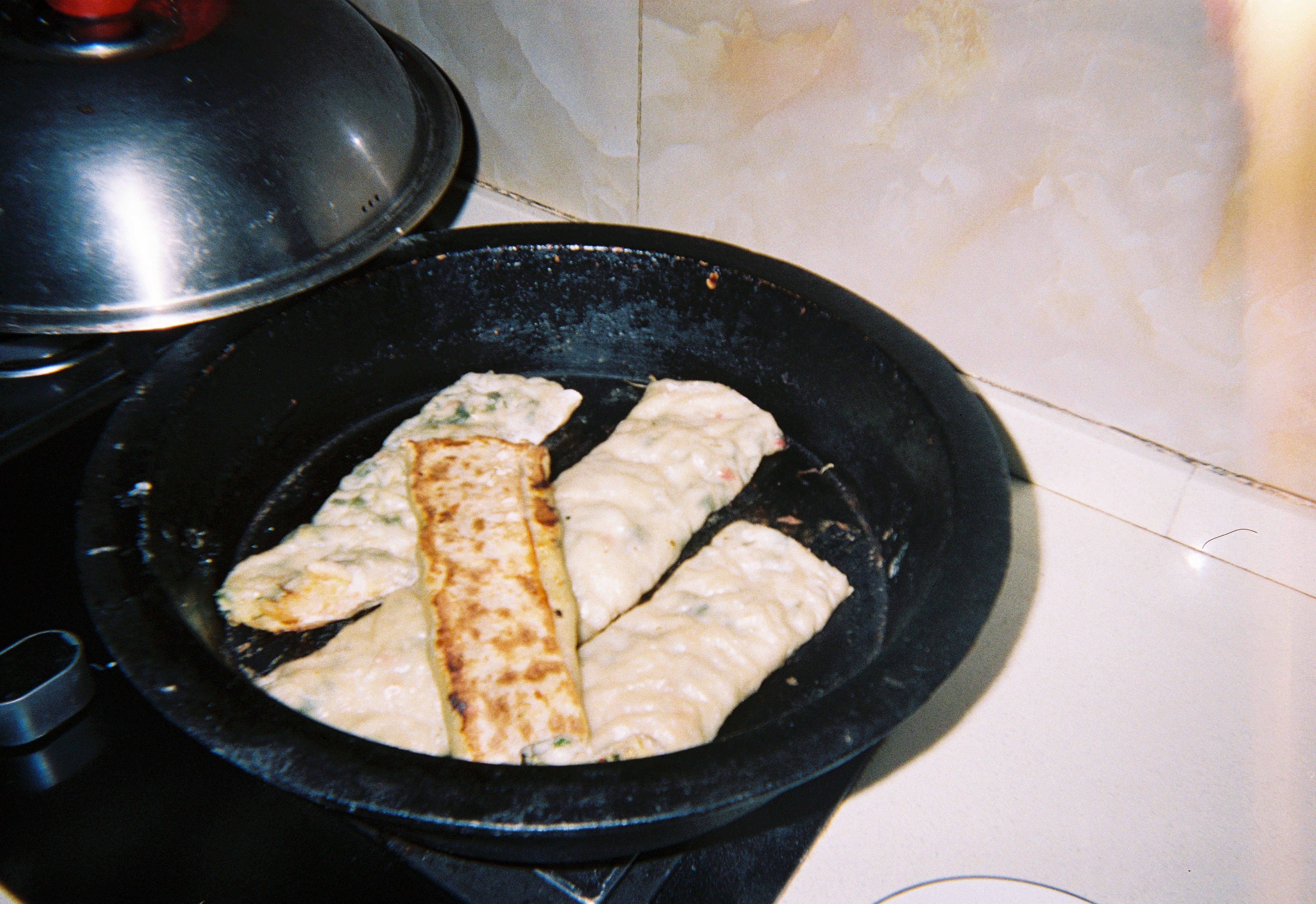
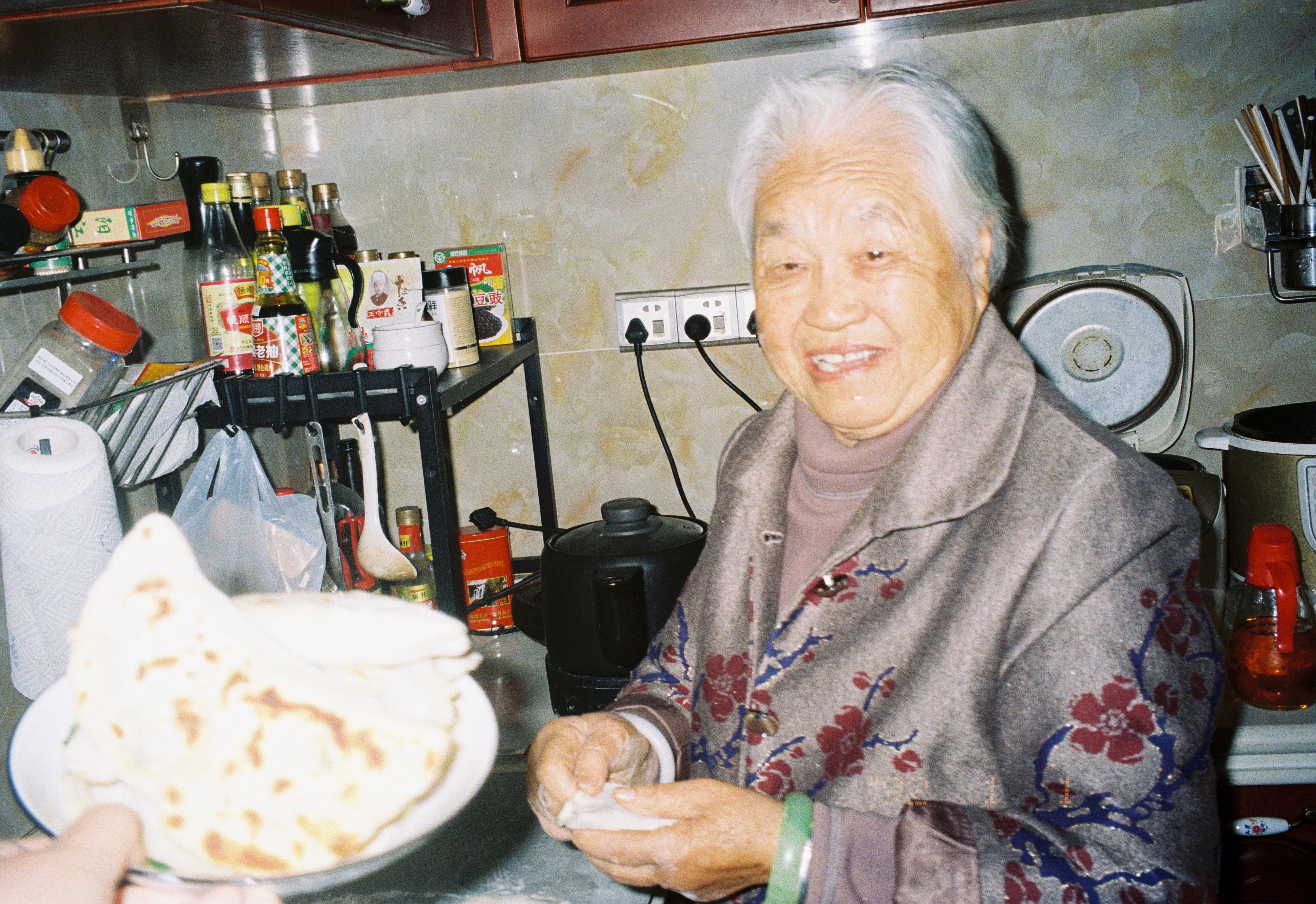
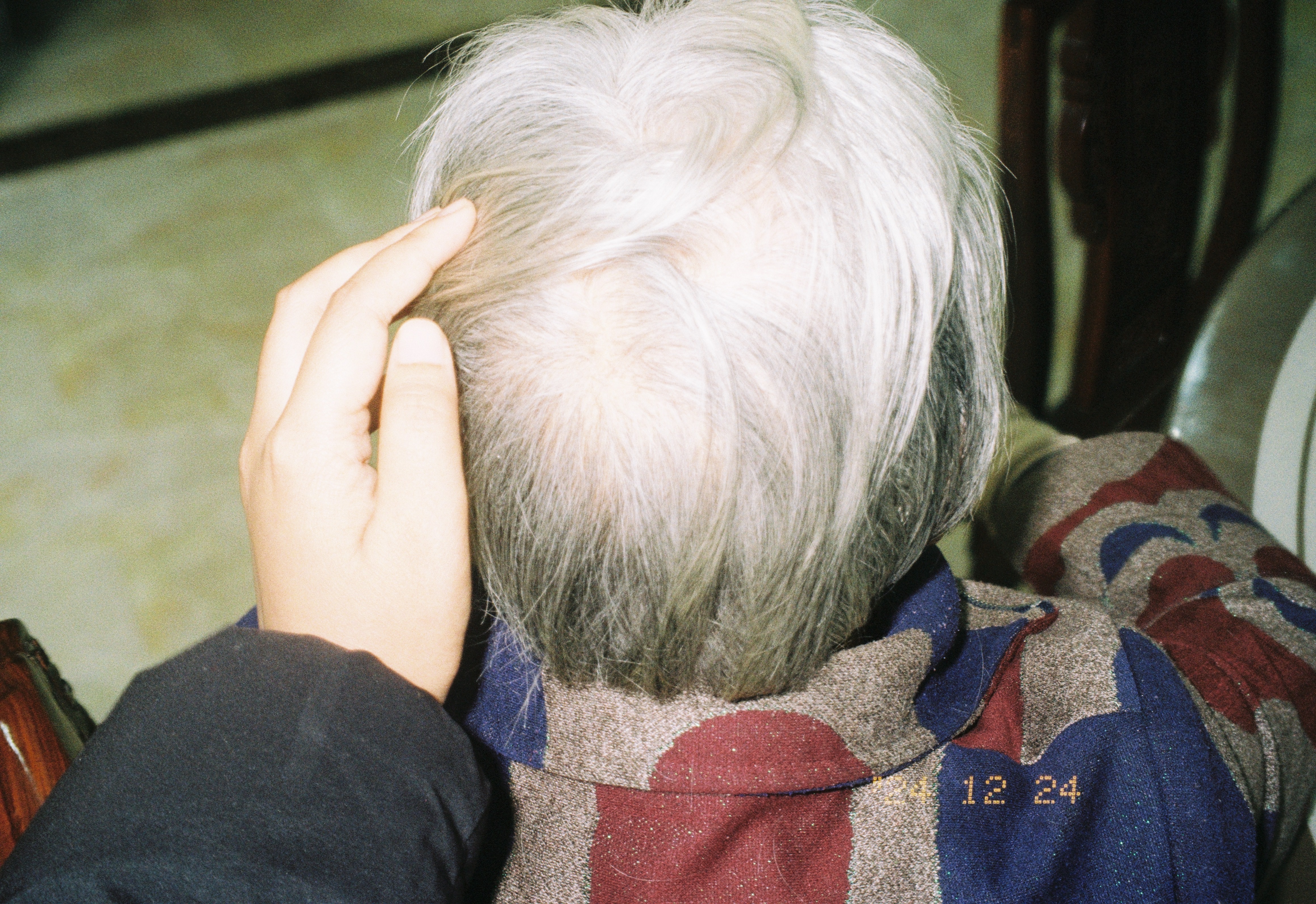
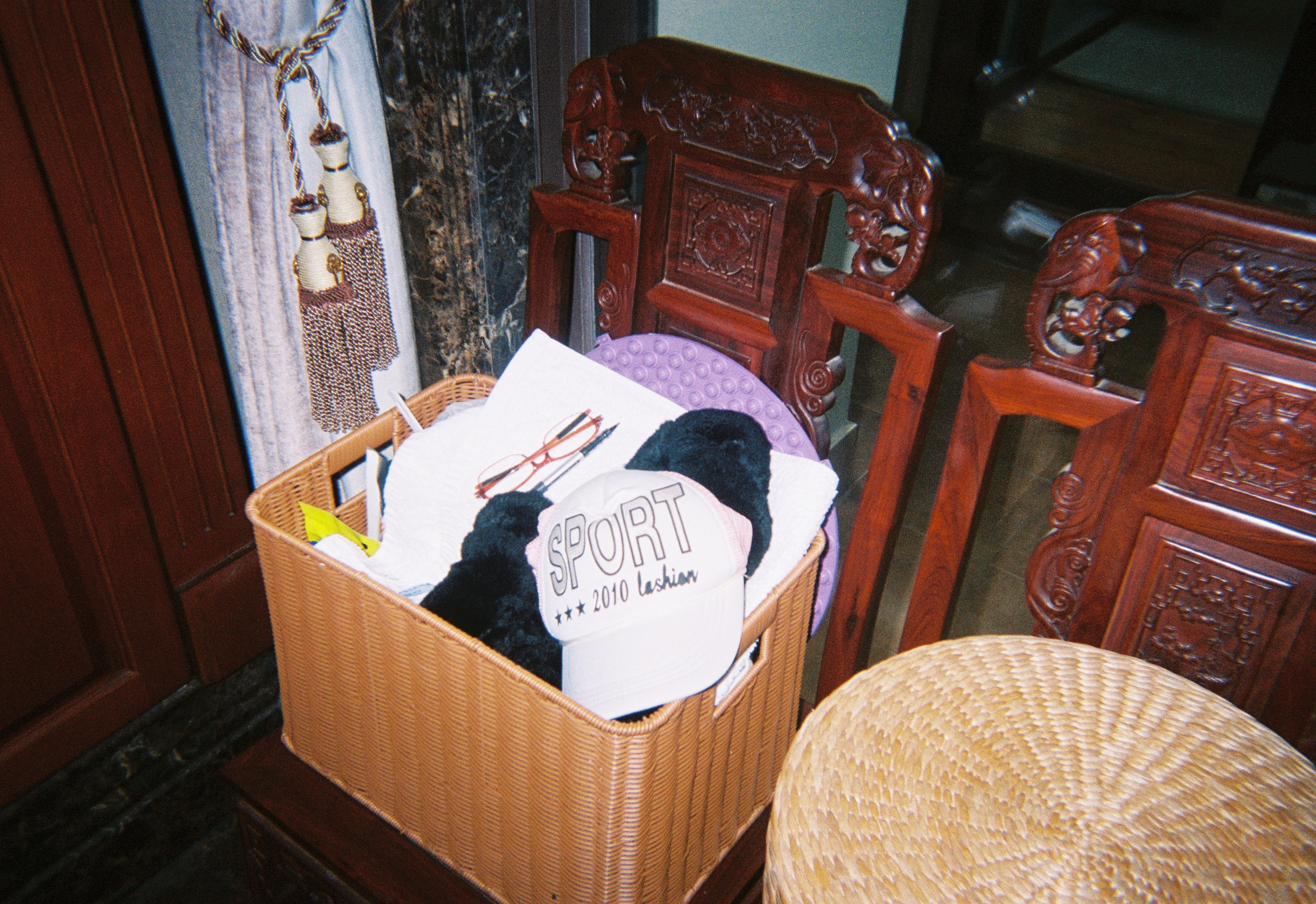
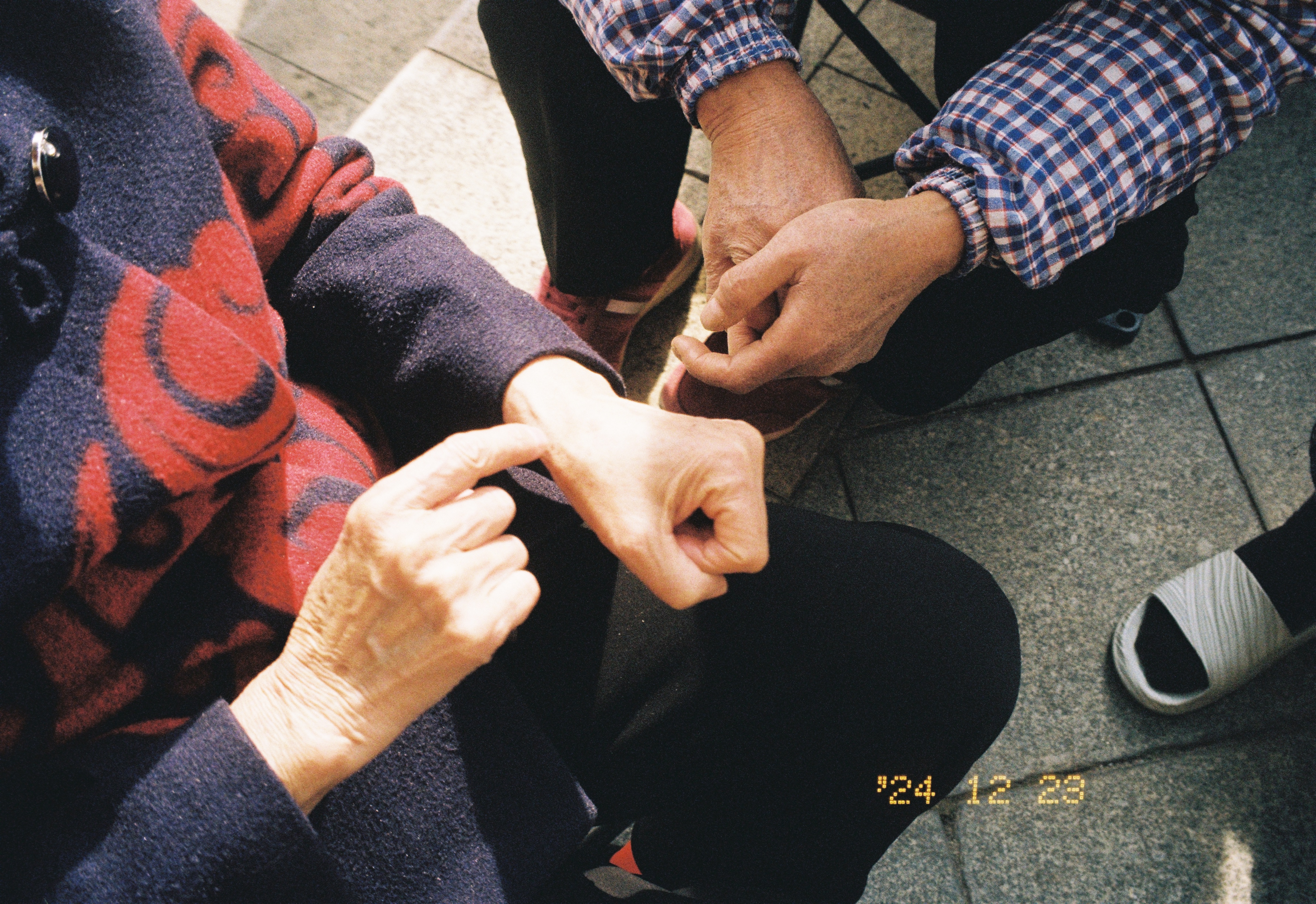

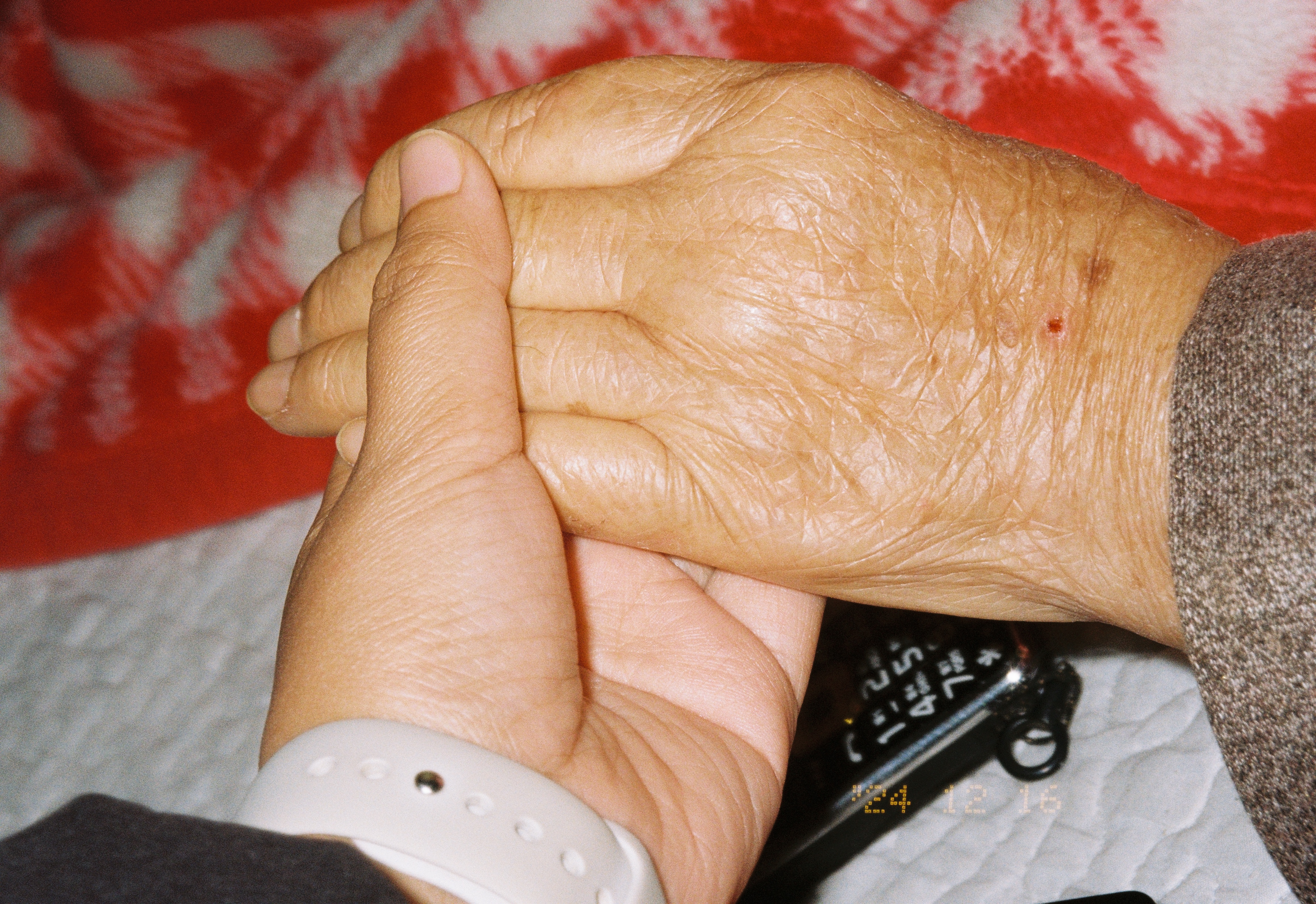
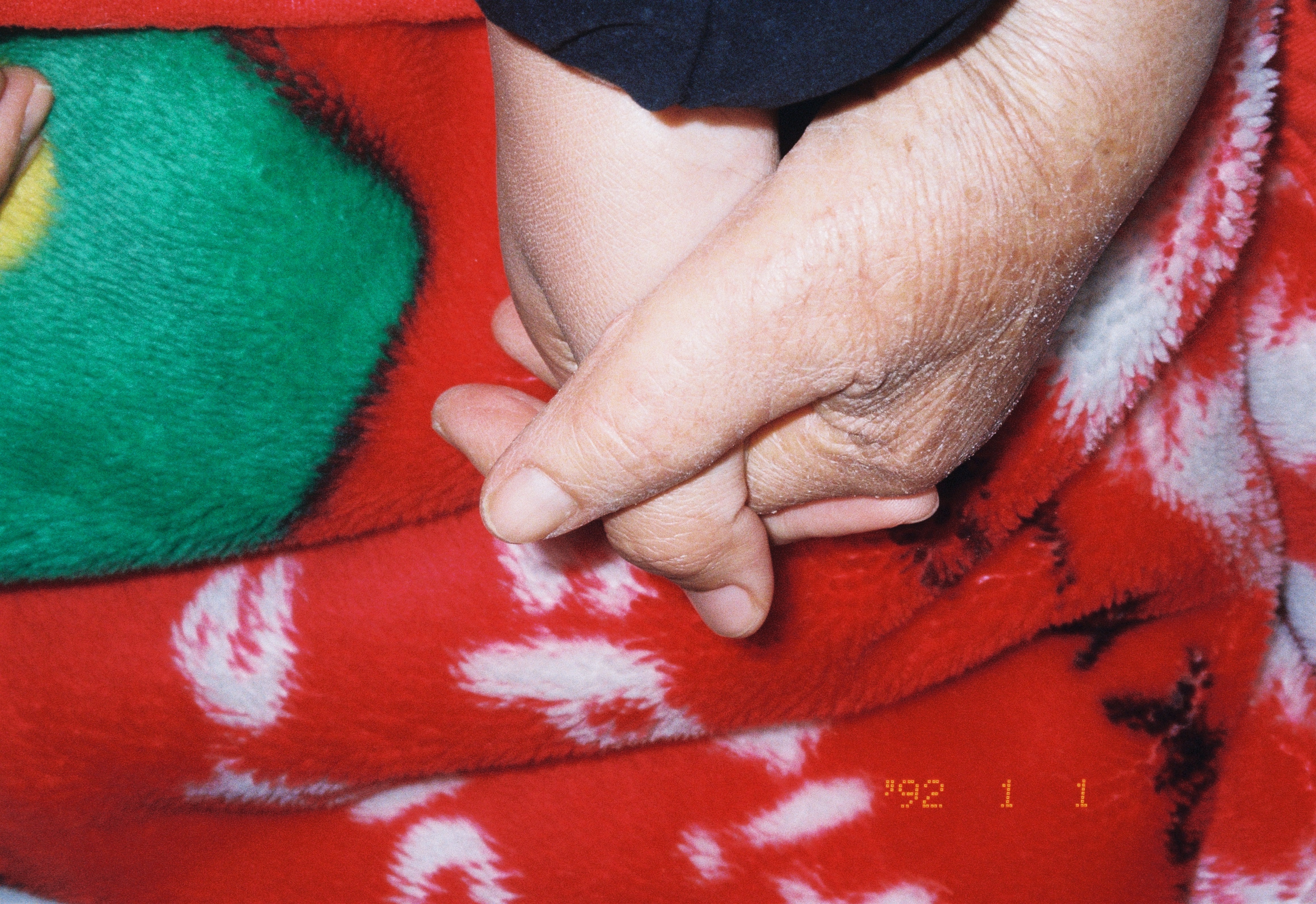
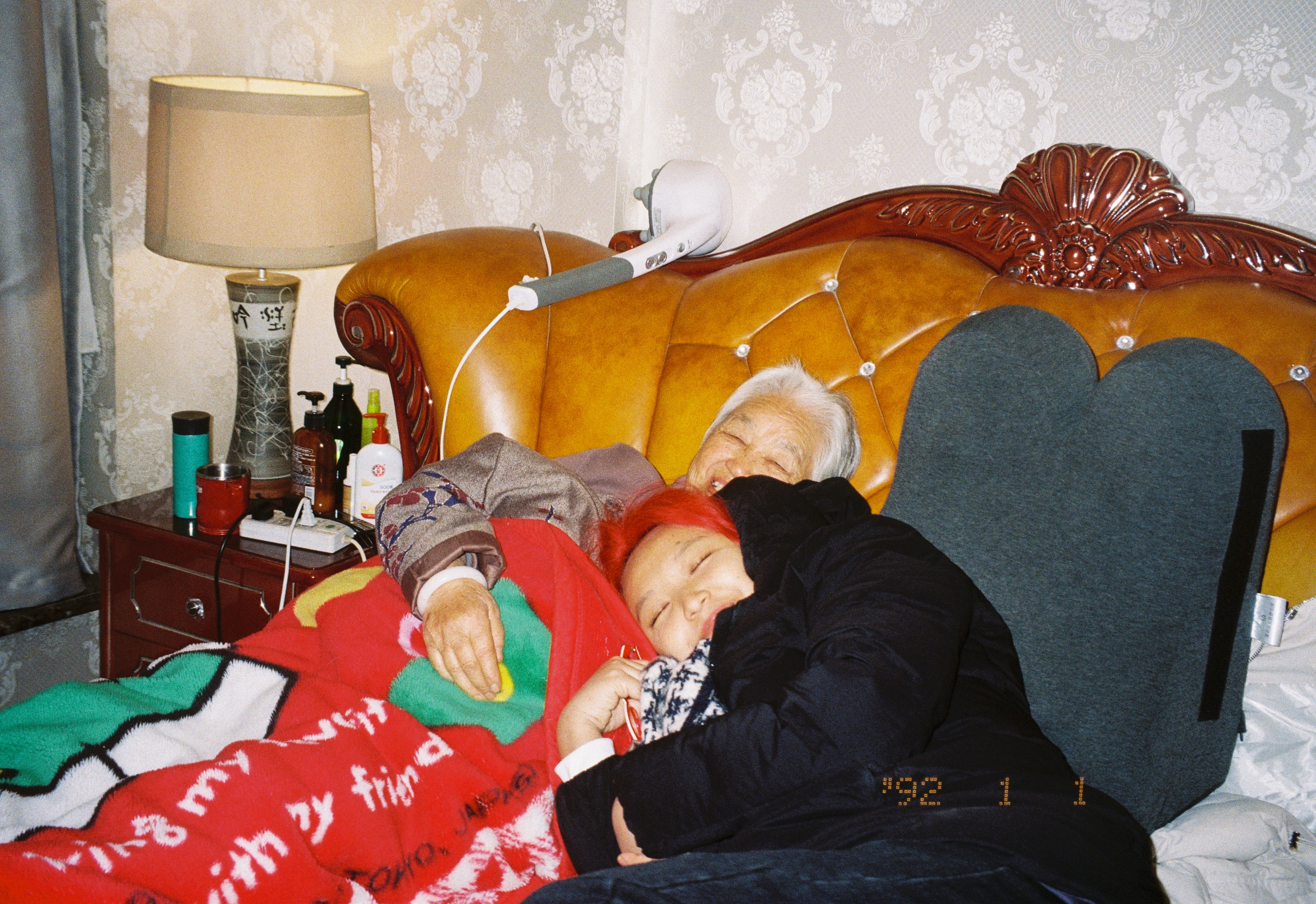
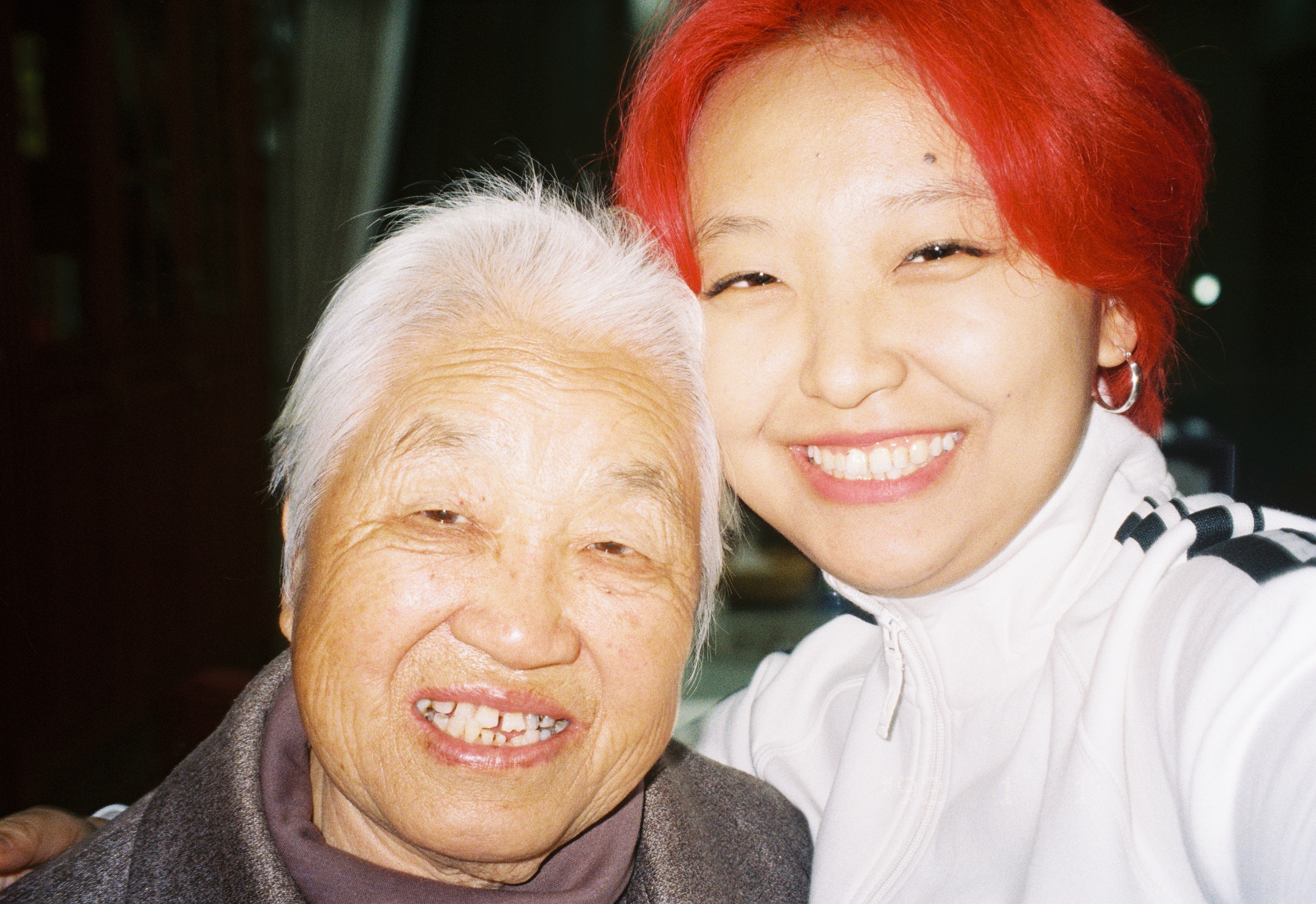
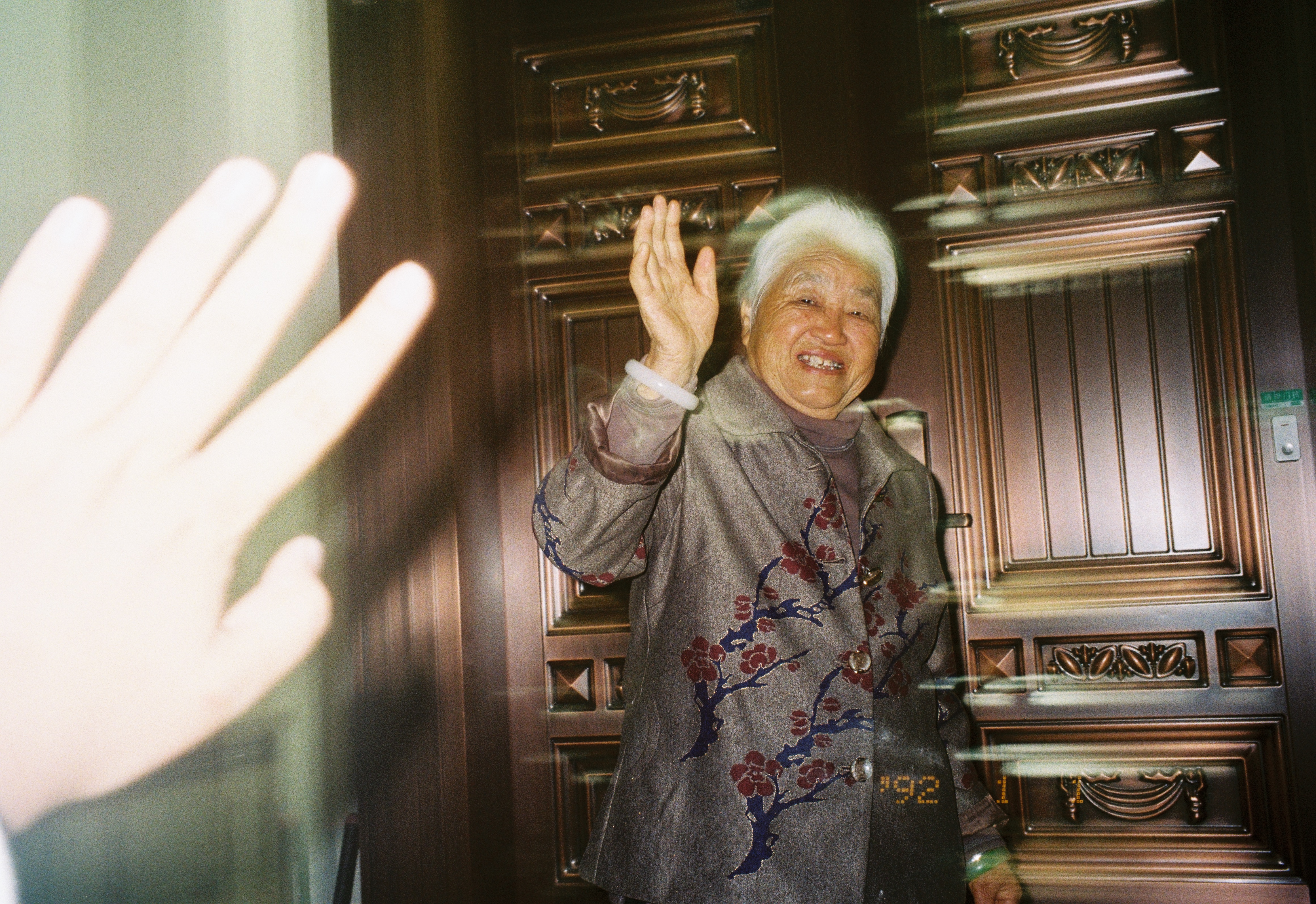
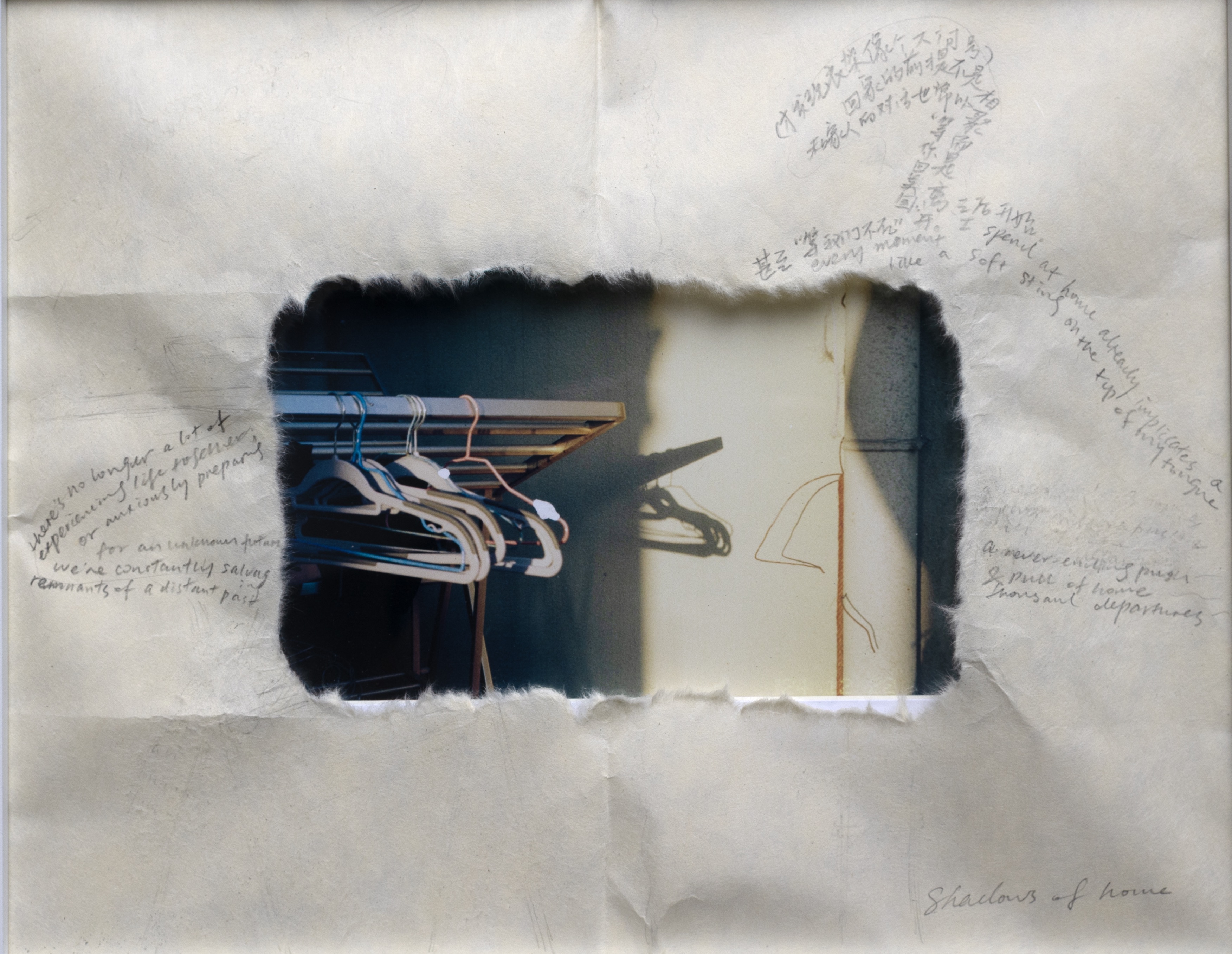
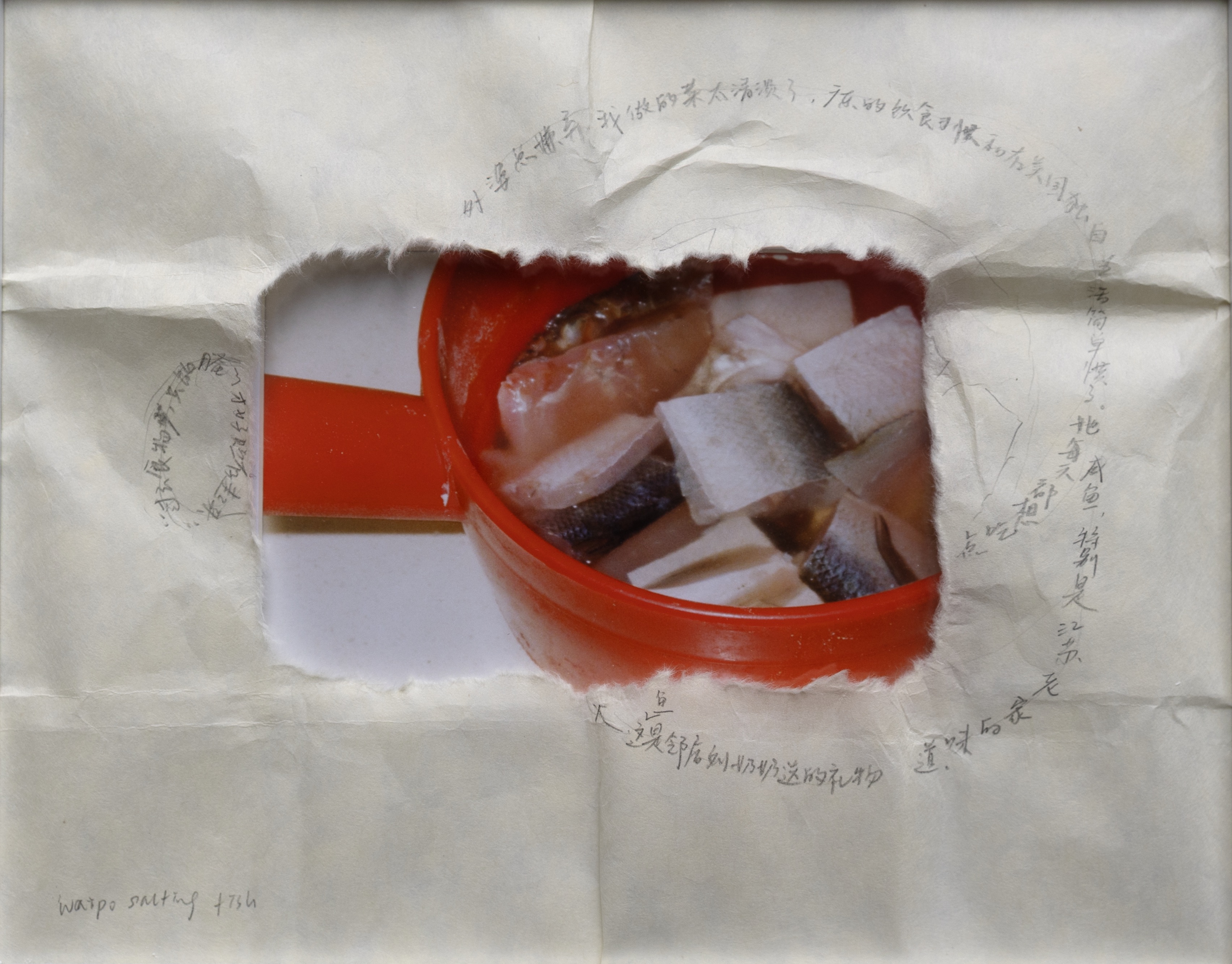
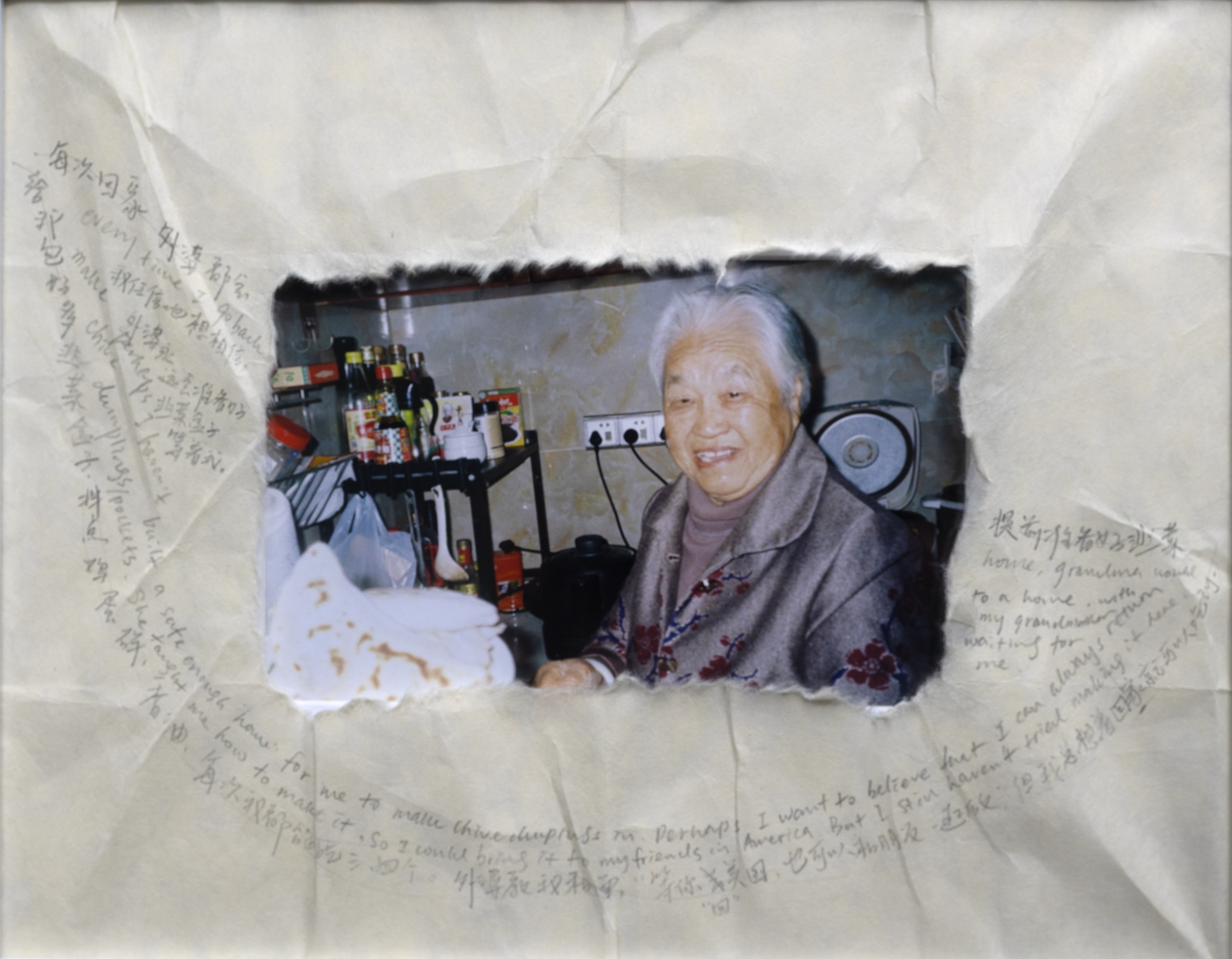
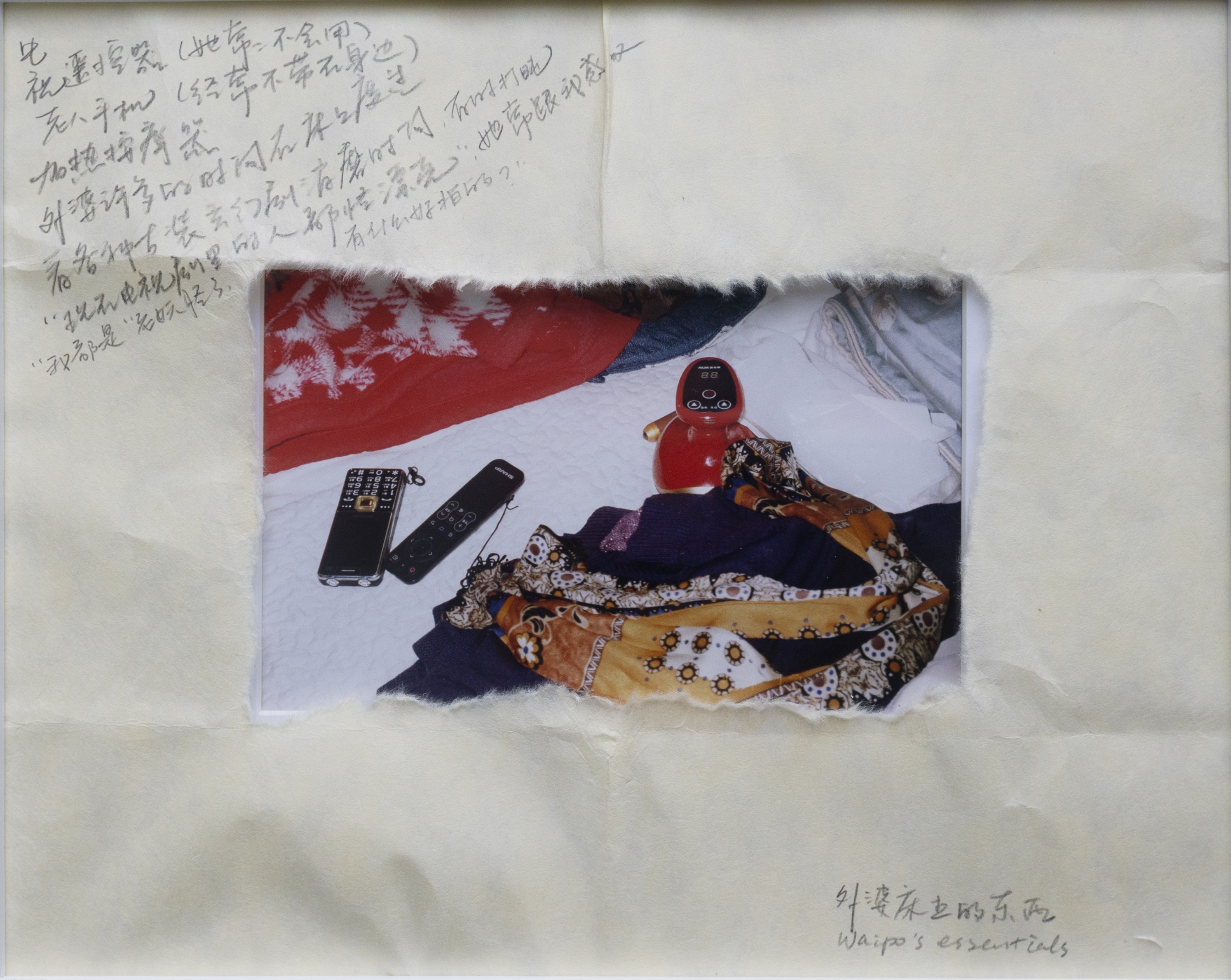
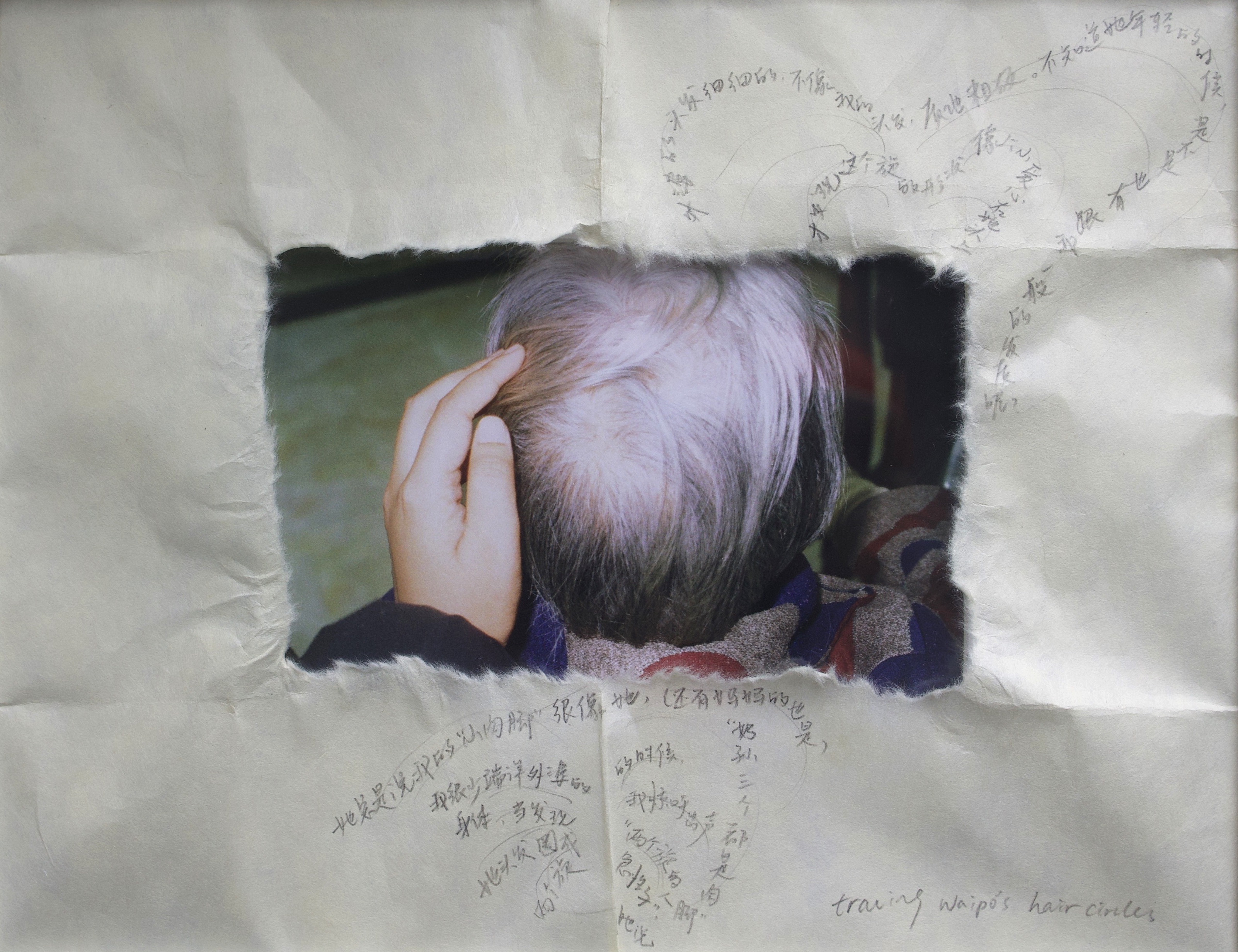
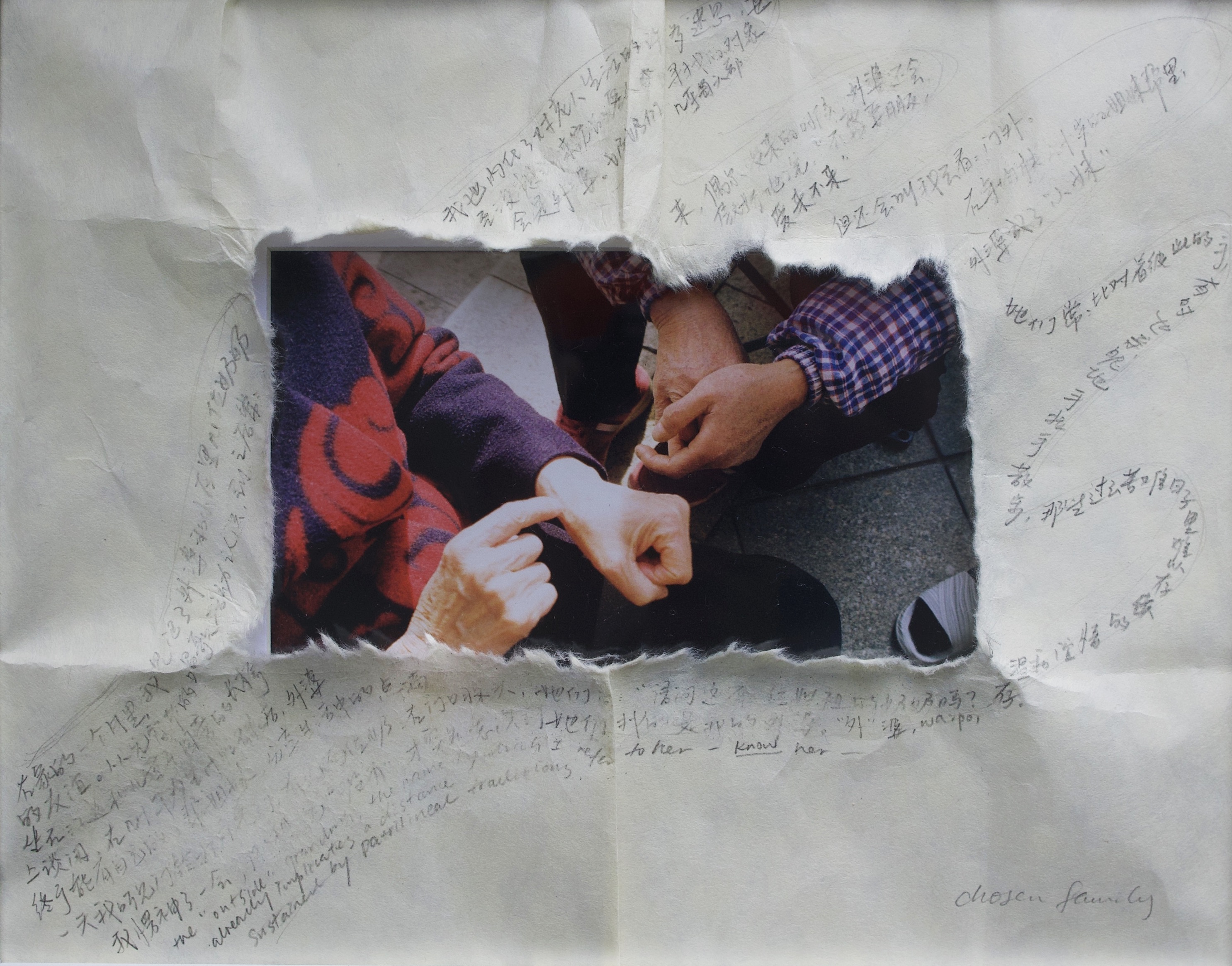
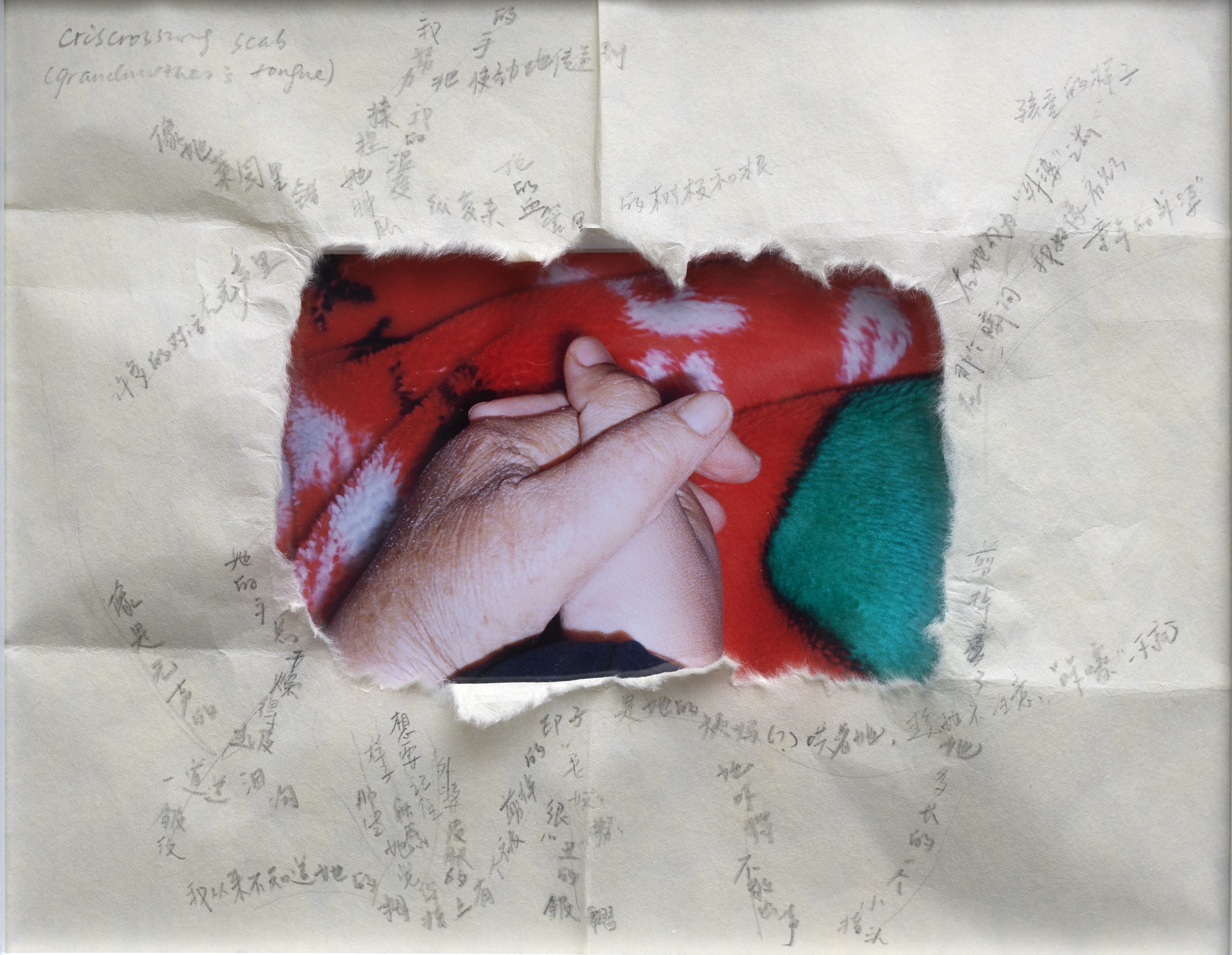
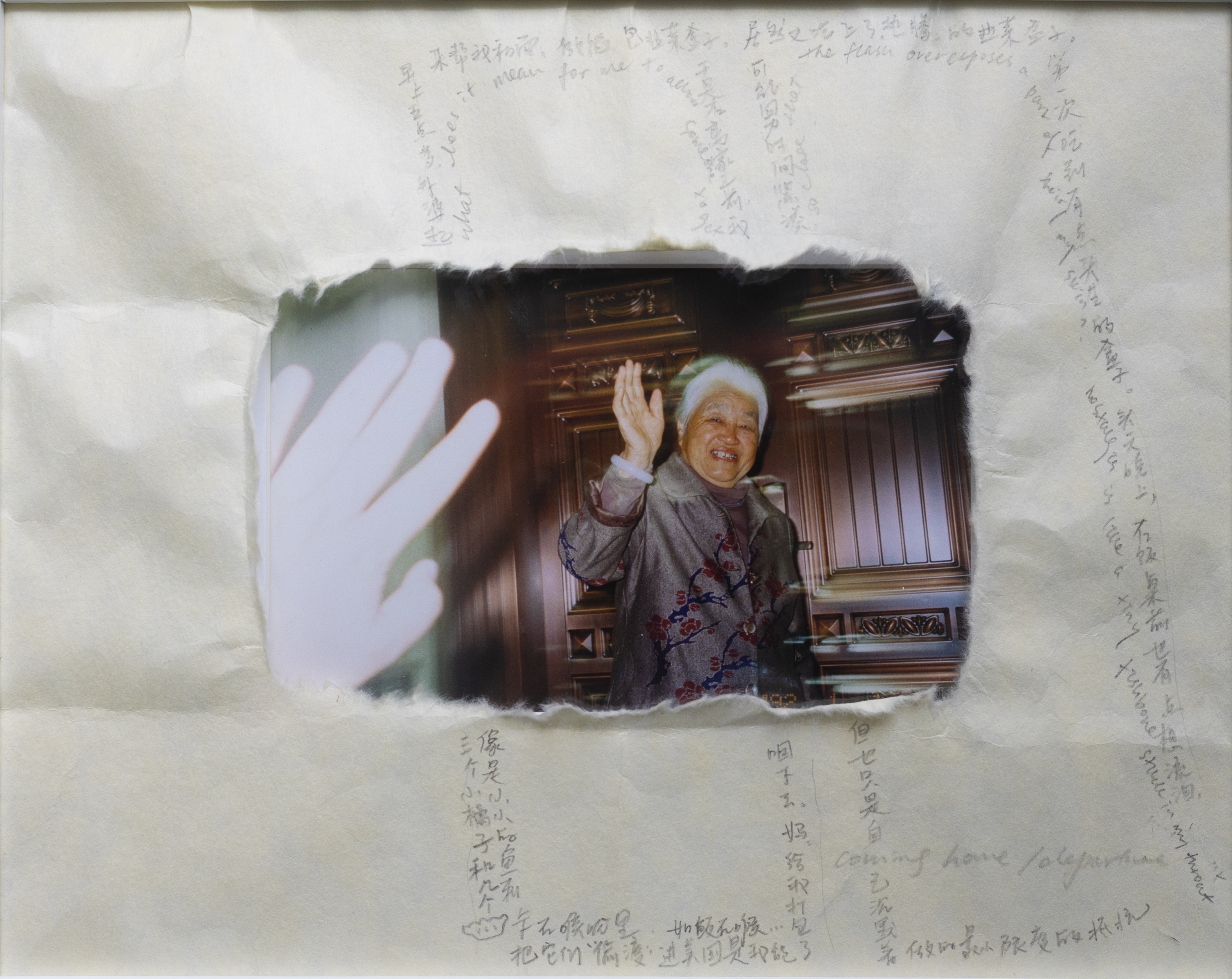
waipo’s hands (learning to love my grandmother)
外婆的手
scenes from my trip home to dongguan - dec 2024
Exhibitions:
“sojourning in lyric time,” The Art Gallery, High Point, NC
July 10-August 29, 2025
“bodies tender with grief,” Semans Gallery, Durham Arts Council, Durham NC
March 17-May 12, 2025
Artist Statement
I never knew that waipo (my maternal grandmother)’s hands had always been swollen for as long as she could remember. Hands of a laborer, a caretaker.
These few years, our distance changed from Jiangsu to Guangdong, from China to the US, from lockdowns to travel bans, from delivering COVID medicine to her from afar to the normalized collective amnesia of pandemic memories. She doesn’t know about my personal and political transformations; our hearts drifted away from each other in silence and misunderstanding. Other than the seemingly inseverable ties of being “family,” I didn’t know how to love her or understand her imperfect love for me.
This past year and a half, I went back to China three times, and waipo moved from Jiangsu to live with my parents in Guangdong. I finally began learning about her life – her dreams about ghosts and ancestors, the yearning for her late mother, the scars on her thumbs, the two hair circles on the back of head, the dry criss-crossing patterns of her skin. I even became friends with her new friends in the neighborhood, witnessing her first time building a chosen family after more than seven decades of hard labor.
Where language falls short, the body remembers. When I asked waipo questions about her life, she would often say that there was nothing worthy of telling. But whenever we made dough, cooked, and did dishes together, the tactile and visceral memories always came back to her. She told me about making tofu and shoe insoles to survive, about her great grandmother's magical dough-making, about hunger and chronic pains. Bearing witness demands slow and intimate listening.
I once read that “to love someone is to attend a thousand births of the person they’re becoming.” Maybe my grandmother will never understand my rebirths — my queerness, my organizing, and everything that feels so foundational to the constantly transforming being that I am. I'm learning to breathe alongside remnants of my past lives that inhabit her clumsy love and care for me.
I've also learned to accept that much of her life is not meant for me to access. I shouldn't parasite the wounds she had long tucked away for my own world building, to dwell on the quiet funerals of the exoskeletons she had shedded and buried.
But I can still choose to love her through the contradictions of it all, to witness her life by preserving and seeding, imperfectly, the bits and pieces we do get to share. It feels like tending to a garden together, her hands next to mine.
---
我从来不知道外婆的手从她记事起就一直肿胀着。一双劳动者的手,一双caretaker的手。
这几年我和她的距离从江苏到广东变成中国到美国,从封控到covid travel bans再到解封之后的跨国送药和集体遗忘。她并不了解我的改变,心与心之间的距离在沉默和不解中越来越远。除了“亲人”这似乎绕不开的羁绊外,我并不知道该如何爱她,该如何看待她对我不完美的爱。
过去一年半,我回国了三次,她也从江苏搬到了广东。我终于开始了解她的生活 — 她关于鬼怪和逝者的梦,她对她妈妈的思念,她拇指上的印记,她头发上的两个旋,她皮肤干燥的纹路。我甚至和她在小区里几个朋友打成一片,见证她在七十多年的辛苦劳累后,第一次能有了自己的chosen family。
我也开始读懂她的口是心非。她总说自己是“老妖怪”,嫌弃我跟着她拍个不停,却也开始主动拉我去录她唱的山歌、骄傲地告诉朋友们我多爱陪着她。当我问她一些口述史的问题时,她总是回答不上来— “反正就是很苦,谁还记得?”或者觉得自己的生活没什么值得被了解的。“我的人生是失败的,”她云淡风轻的一句话让我心里一阵刺痛。
where language falls short, the body remembers. 手是她记忆的载体 — 在和面、做饭、洗碗的时候,那些触觉和气味总会触发她的回忆 — 关于童年卖豆腐和鞋垫谋生计,关于她的太太揉面摊饼的功夫,关于饥饿和病痛。每次回家,我都能看见自己在慢慢疗愈从组织/行动和不断的失去中中习得的reactive desire to excavate and salvage memory. bearing witness需要仔细聆听和耐心等待。
i once read that “to love someone is to attend a thousand births of the person they’re becoming.” maybe my grandmother will never understand my rebirths — my queerness, my organizing, and everything that feels so foundational to the constantly transforming being that i am. im learning to breathe alongside remnants of my past lives that inhabit her clumsy love and care for me.
ive also learned to accept that much of her life is not meant for me to access. i shouldn’t parasite the wounds she had long tucked away for my own world building, to dwell on the quiet funerals of the exoskeletons she’d shedded and buried.
but i can still choose to love her through the contradictions of it all, to witness her life by preserving and seeding, imperfectly, the bits and pieces we do get to share. it feels like tending to a garden together, her hands next to mine. 在我眼里这一切都值得记录。